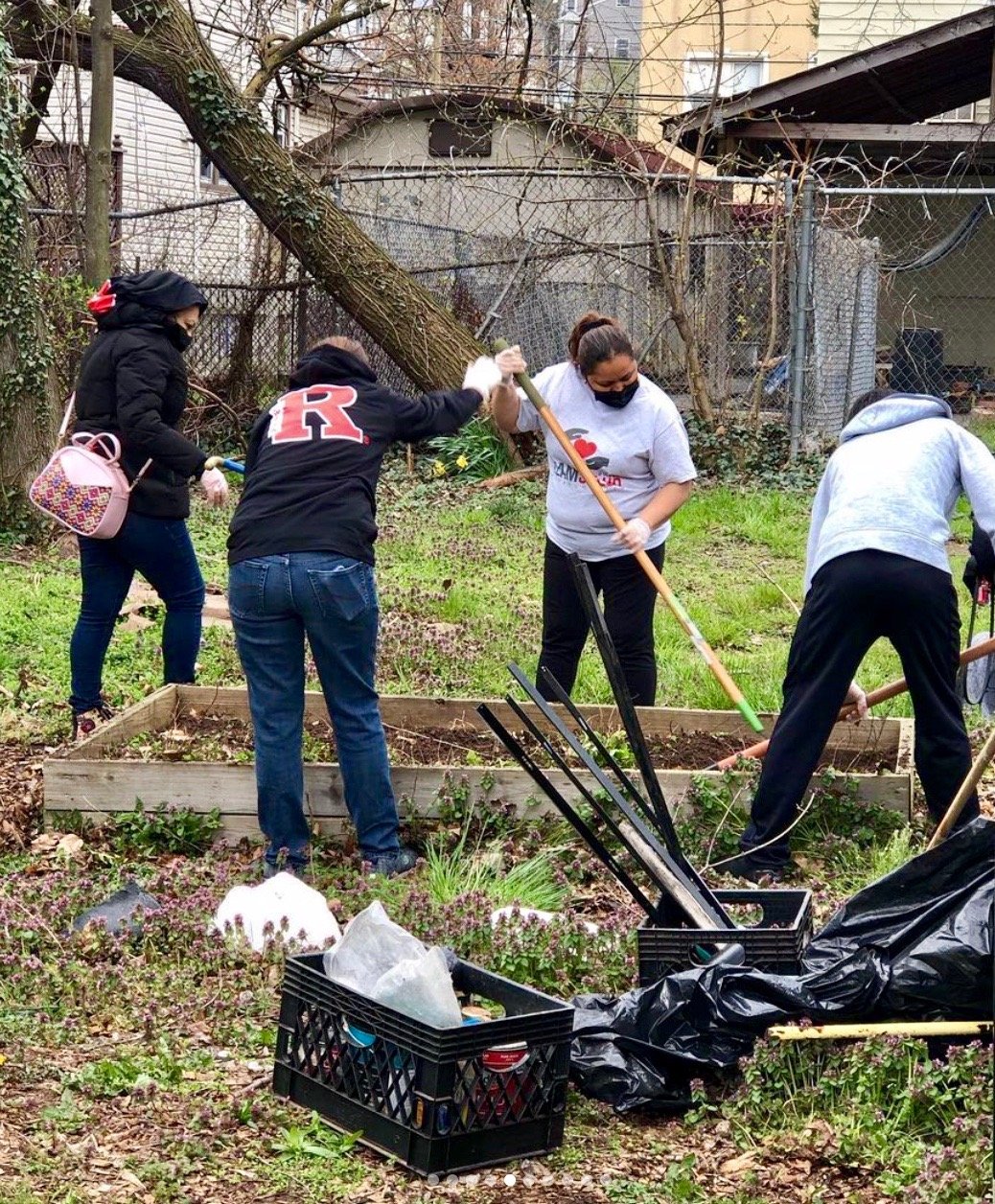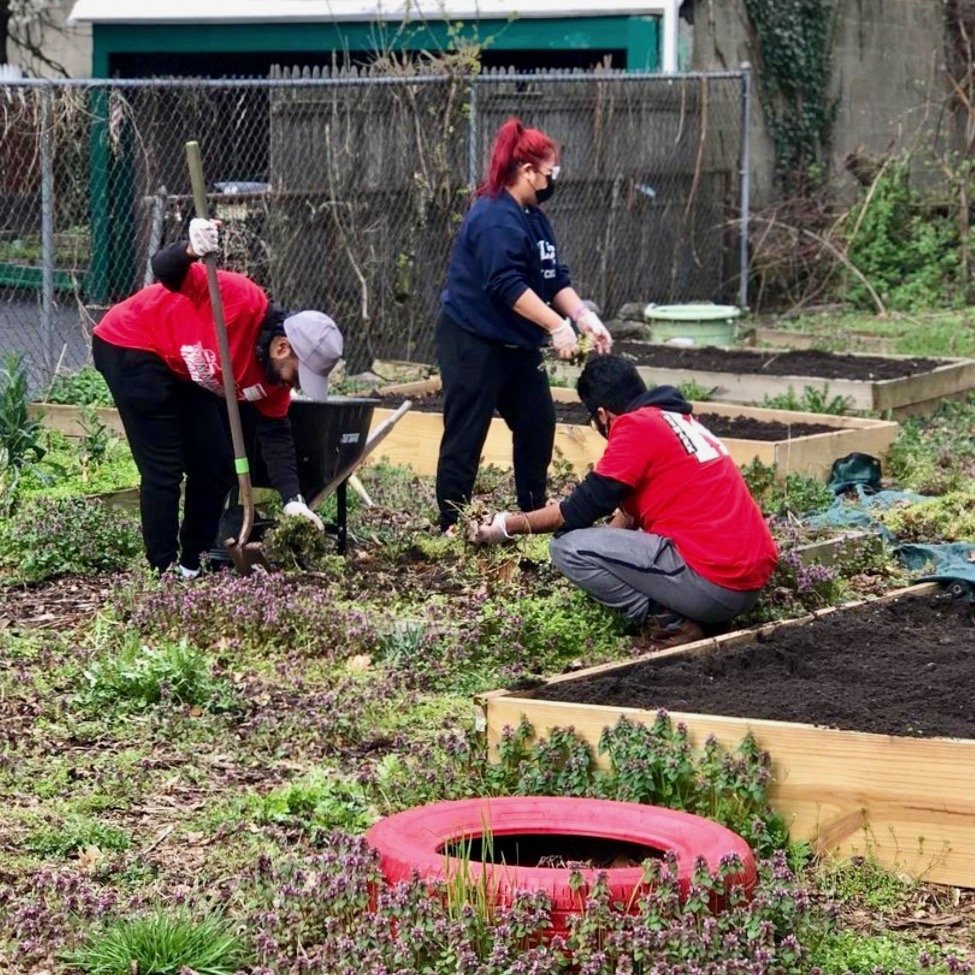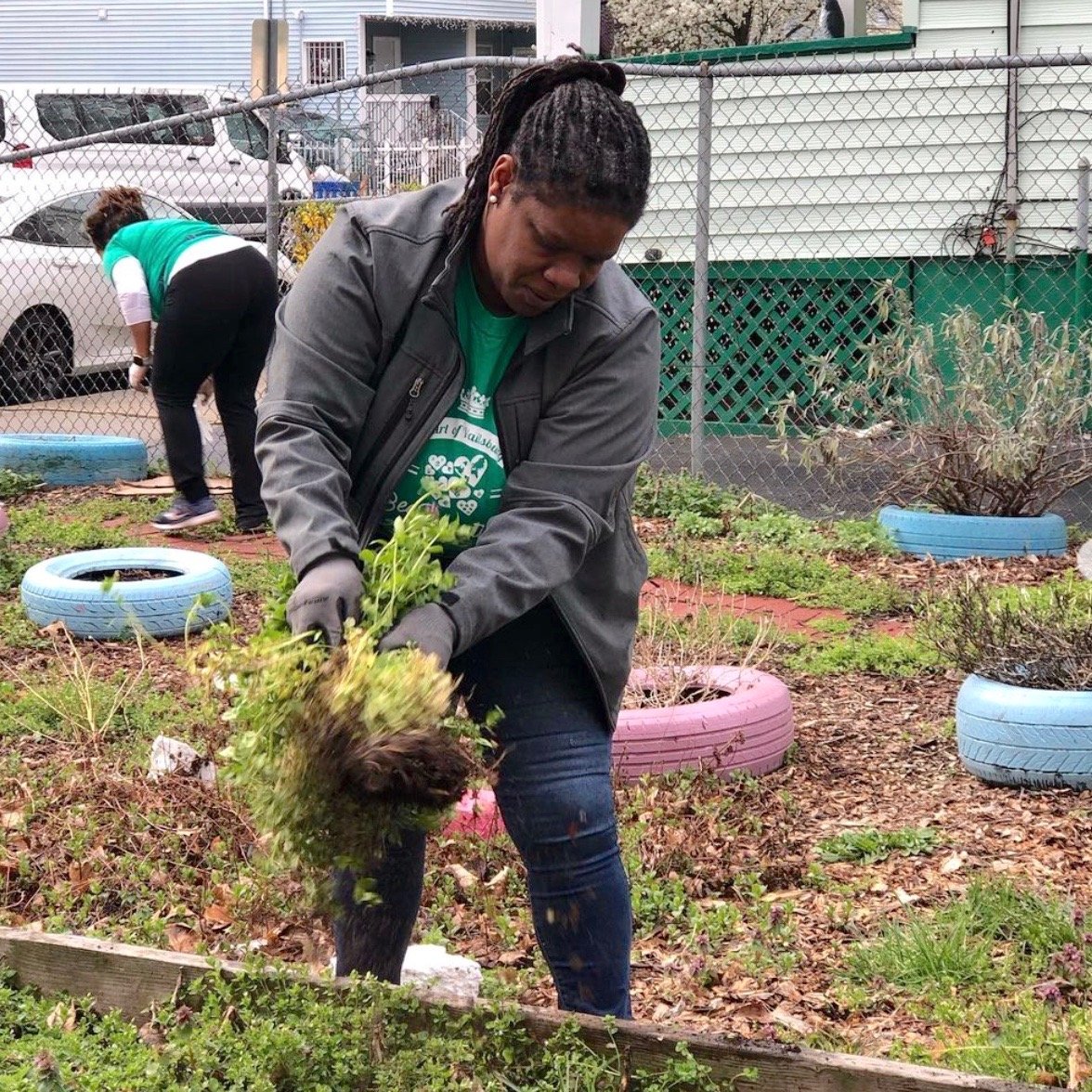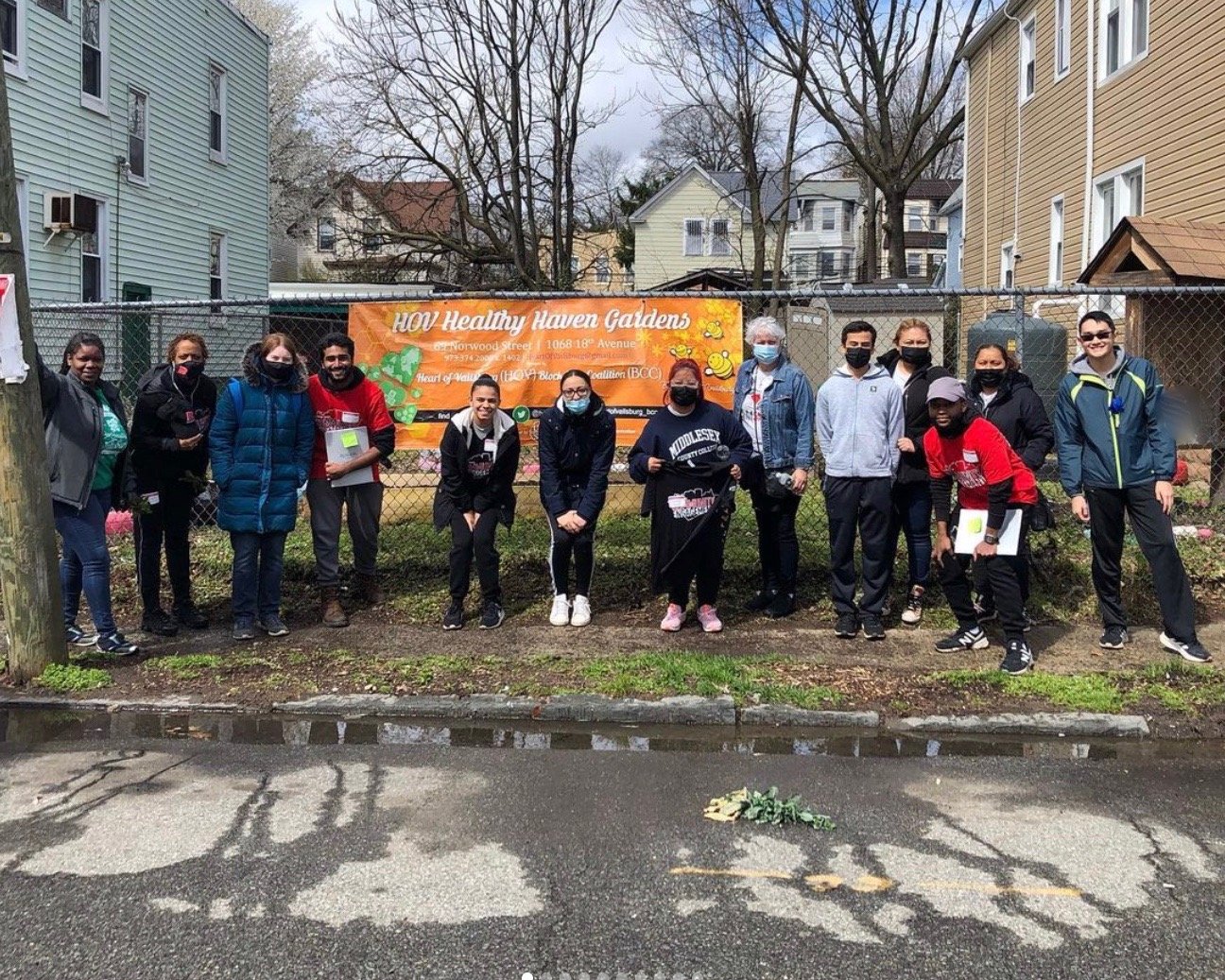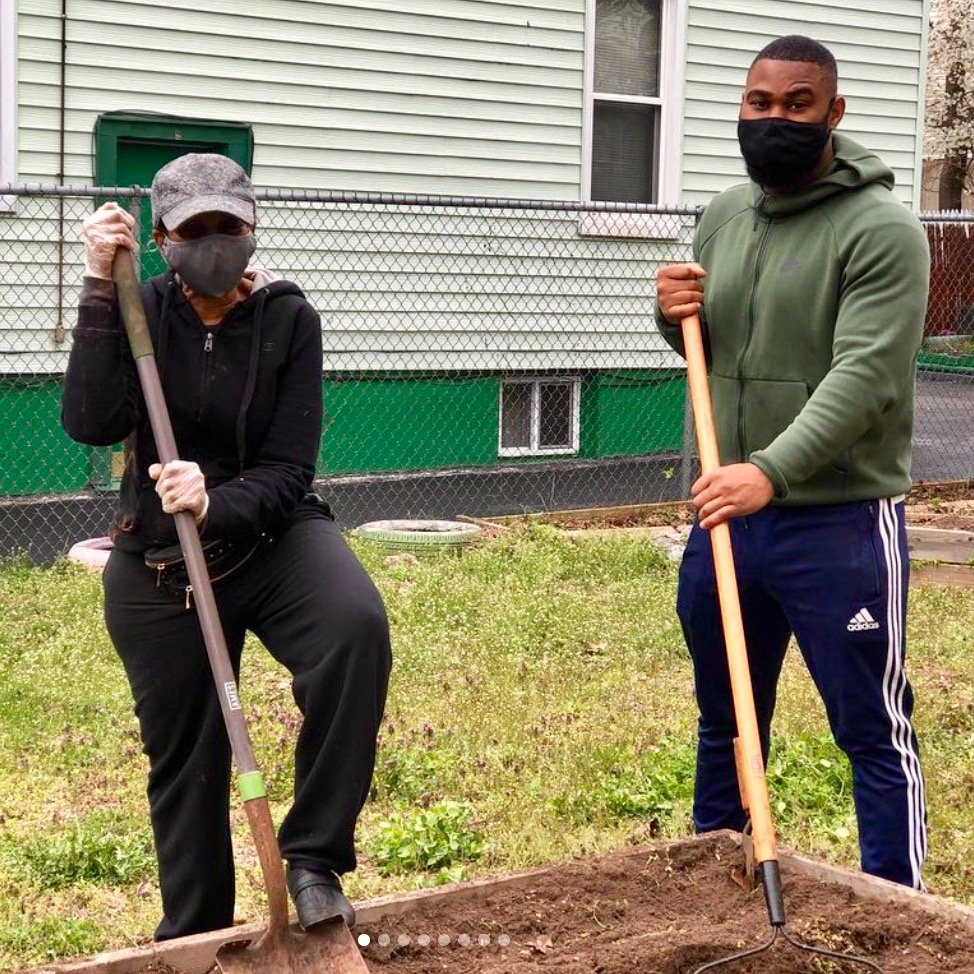Fostering community and food security with “Healthy Havens” gardens
Credit for all photos in this story: Heart of Vailsburg Block Club Coalition
One in 12 New Jersey households does not have reliable access to healthy food, according to a new study conducted by the Robert Wood Johnson Foundation and Food Research & Action Center. That number is even higher in Newark, where about one in nine people is food insecure, according to data from Feeding America. In the face of this problem, the Heart of Vailsburg Block Club Coalition started two community gardens to grow food sustainably while bringing Newark’s Vailsburg community together in the process.
HOV-BCC is a branch of the Unified Vailsburg Services Organization, a nonprofit group whose mission is to improve the Vailsburg neighborhood residents’ quality of life. One of HOV-BCC’s primary efforts is “activating green spaces,” according to Sabrina Ross, UVSO’s community outreach manager.
The group leases these spaces through the City of Newark’s adopt-a-lot program. Started in 2004, this program allows Newark residents to grow their own food and to make city-owned vacant lots more visually appealing—for only $1 per year.
HOV-BCC manages two community gardens, which it calls “Healthy Havens”: one at 1068 18th Avenue and the other at 69 Norwood Street in Newark, less than half a mile away. The 18th Avenue garden was established in 2013, and the “Norwood Haven” in 2016. Anyone interested can rent their own garden box, and they become responsible for maintaining it. As a result, these gardens are full of eggplants, peppers, tomatoes, potatoes, and a wide variety of herbs. The gardeners often share their produce with neighbors.
“It’s not a great deal of food, but the idea is to raise awareness and provide education and activities for the youth, seniors, and nearby residents,” said Ross. “It’s about bringing the community together.”
Ross sees HOV-BCC as a small piece in solving the food insecurity puzzle but finds there is still a lot more to be done. “The other pieces include the development of actual grocery stores in the area that are affordable” and provide fresh and locally grown food, she said, noting that “A combination of various farmers markets should also work.” An additional challenge is that the adopt-a-lot program only allows HOV-BCC to lease its garden sites, making it unclear whether HOV-BCC will be able to permanently establish itself in the Vailsburg neighborhood. Someone else can purchase the lot at any point, forcing HOV-BCC to find another space.
While the community awaits changes, HOV-BCC has partnered with Newark Science and Sustainability, another nonprofit working to implement “various initiatives to increase awareness of environmental, ecological, and wellness issues.” The latest initiative they want to tackle together is to find a way for HOV-BCC to own the lots it uses instead of leasing them—without having to incur the same fees that major developers face.
HOV-BCC is “an amazing grassroots, community-driven coalition,” said Tobias Fox, founding and managing director of Newark SAS.
HOV-BCC also aims to raise awareness about sustainability in general; its dimensions, for Ross, go beyond the environment. “Sustainable communities, for me, have community pride and are healthy, green communities with more trees on the block. They have more and more residents actively engaged with what’s happening in the city in terms of economic development, crime prevention, and public safety,” she said.
Since the founding of the Healthy Havens, hundreds of Vailsburg community members have learned to grow their own food with HOV-BCC, including at the organization’s Green Thumb Trainings and Growshops.
Looking to the future, HOV-BCC plans to continue fighting food insecurity and making the Vailsburg community more sustainable. It hopes to increase residents’ participation in the Healthy Havens, create a biweekly farmer’s market, and give more support to other local growers.
“Stay engaged,” Ross advises people who want to increase the sustainability of their communities, “and start talking to your neighbors. You have to start talking to people to be the change that you want to see.”


